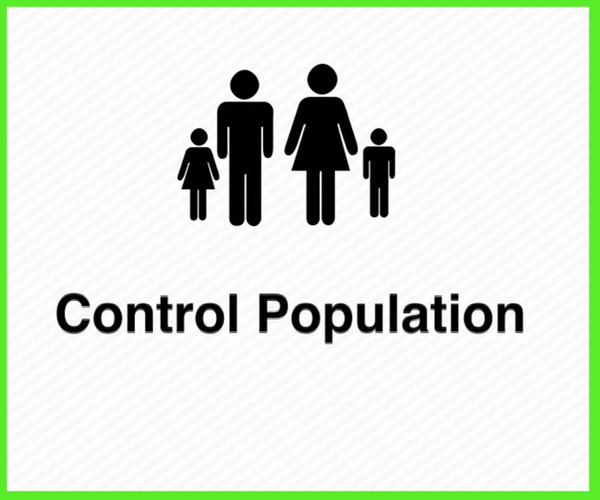Population Control- various steps to generate awareness among peoples 24/11/2019 – Posted in: Press Information Bureau – Tags: INTERNATIONAL CONFERENCE ON POPULATION AND DEVELOPMENT, Intrauterine Contraceptive Device, Mission Parivar Vikas, National Family Planning Indemnity Scheme
Population Control
Ministry of Health and Family Welfare
WHAT
The Government is taking various steps to sensitize people and generate awareness of the need for population control.
IMPORTANT INITIATIVES
- The 360-degree media campaign, launched in 2016, comprising TV Commercials, posters and hoardings, a year-long Radio show, and a dedicated website on Family Planning.
- World Population Day & fortnight, as well as Vasectomy Fortnight, are observed every year to boost awareness.
- Promotional activities like Saas bahu sammelans, Nayi Pehel Kits, Mobile publicity vans, and advocacy meetings are undertaken to increase awareness in high fertility Mission Parivar Vikas districts.
STEPS BY GOVERNMENT FOR POPULATION CONTROL
- Mission Parivar Vikas
The mission was launched for substantially increasing access to contraceptives and family planning services in 146 high fertility districts with Total Fertility Rate (TFR).
- New Contraceptive Choices
New contraceptives viz. Injectable contraceptives and Centchroman have been added to the existing basket of choices.
- A new method of Intrauterine Contraceptive Device (IUCD) insertion immediately after delivery i.e. post-partum IUCD (PPIUCD) has been introduced.
- Redesigned Contraceptive Packaging
The packaging for Condoms, OCPs and ECPs have now been improved and redesigned so as to increase the demand for these commodities.
- Compensation scheme for sterilization acceptors
Under the scheme, MoHFW provides compensation for loss of wages to the beneficiary and also to the service provider (& team) for conducting sterilizations.
- Clinical Outreach Teams (COT) Scheme
The scheme has been launched in 146 Mission Parivar Vikas districts for providing Family planning services through mobile teams from accredited organizations in far-flung, underserved and geographically difficult areas.
- Scheme for Home delivery of contraceptives by ASHAs at the doorstep of beneficiaries.
- Scheme for ASHAs to Ensure spacing in births.
- Scheme for provision of Pregnancy Testing Kits in the drug kits of ASHAs for use in communities.
- Family Planning Logistic Management and Information System (FP-LMIS)
Dedicated software to ensure smooth forecasting, procurement and distribution of family planning commodities across all the levels of health facilities.
- National Family Planning Indemnity Scheme (NFPIS) under which clients are insured in the eventualities of death, complication and failure following sterilization.
- Ensuring quality of care in Family Planning services by establishing Quality Assurance Committees in all states and districts.
- Appointment of dedicated RMNCH+A counselors at high case load facilities.
- Improved Demand generation activities through a 360-degree media campaign.
In order to improve programme implementation, the Government is focusing on:
- High fertility districts
- Giving emphasis on spacing methods
- Improvement in quality of services
- Intensive monitoring.
The Government does not have such a proposal at present since India is a signatory to the ICPD declaration of 1994 held in Cairo (International Conference on Population and Development) which unequivocally advocates voluntary informed choice and honouring reproductive rights of couples to decide freely and responsibly the number and spacing of their children.
INTERNATIONAL CONFERENCE ON POPULATION AND DEVELOPMENT (ICPD)
The United Nations coordinated an ICPD in Cairo, Egypt, on 5–13 September 1994. Its resulting Programme of Action is the steering document for the United Nations Population Fund (UNFPA).
Delegates from various governments, UN agencies and NGOs gathered for a discussion of a variety of population issues, including immigration, infant mortality, birth control, family planning, the education of women, and protection for women from unsafe abortion services.
According to the official ICPD release, the conference delegates achieved consensus on the following four goals:
- Universal education
- Reduction of infant and child mortality
- Reduction of maternal mortality
- Access to reproductive and sexual health services including family planning
Source: PIB
READ MORE PIB UPDATES
- Various initiatives for the mitigation of air pollution
- Indian Institute of Skills
- Bharatiya Poshan Krishi Kosh
- Golden Leaf Award 2019
- Indian Institute of Skills
- Agricultural and Processed Food Products Export Development Authority
- The book – ‘Savarkar: Echoes from a Forgotten Past’
- HADR Exercise Tiger TRIUMPH
- Swachh – Nirmal Tat Abhiyaan
- GeM signed MoU with the Central Bank of India
- Exercise ‘Samudra Shakti’
You are on the Best Online IAS preparation platform. You are learning under experts.
We are present on Facebook- Diligent IAS, LinkedIn- Diligent IAS, YouTube- Diligent IAS, Instagram- Diligent IAS. Get in touch with us.

